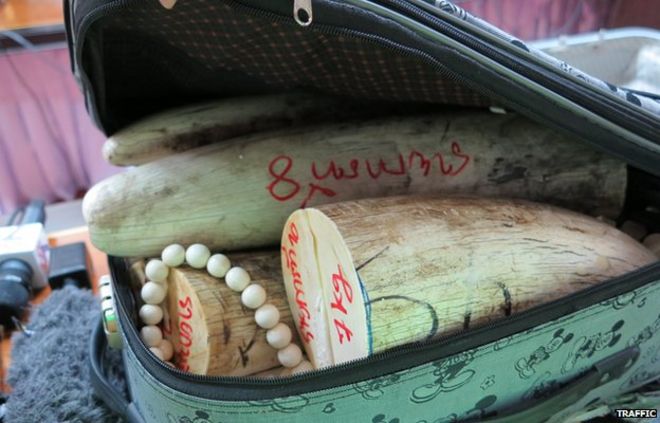By Navin Singh KhadkaEnvironment reporter, BBC World Service
7 February 2015
From the sectionScience & Environment
Extra training could help cargo handlers know what to look for
Front-line transport workers largely lack awareness on how criminal networks disguise illegal wildlife products, it emerged at a summit in Bangkok.
Customs officials and wildlife trade experts say that educating freight forwarders and handlers of air, ship and land cargoes could help the fight against trafficking.
Their recent meeting with transport operators was the first of its kind.
"There was a genuine shock (among participants from the transport industry in the meeting) as to the magnitude of wildlife trade and the methods of disguise used by traffickers to transport these commodities," said Martin Palmer, an expert in global trade compliance requirements and international transport.
"For example, when a rhino horn is ground down to powder, it's almost impossible to identify the difference between a box of grey chalk and a box of rhino horn powder, from a visual check.
"Facts like these came as a big surprise to participants from the transport industry."
Wildlife organisations say around 35,000 elephants are killed for their tusks every year, mainly in Africa.














No comments:
Post a Comment
You only need to enter your comment once! Comments will appear once they have been moderated. This is so as to stop the would-be comedian who has been spamming the comments here with inane and often offensive remarks. You know who you are!